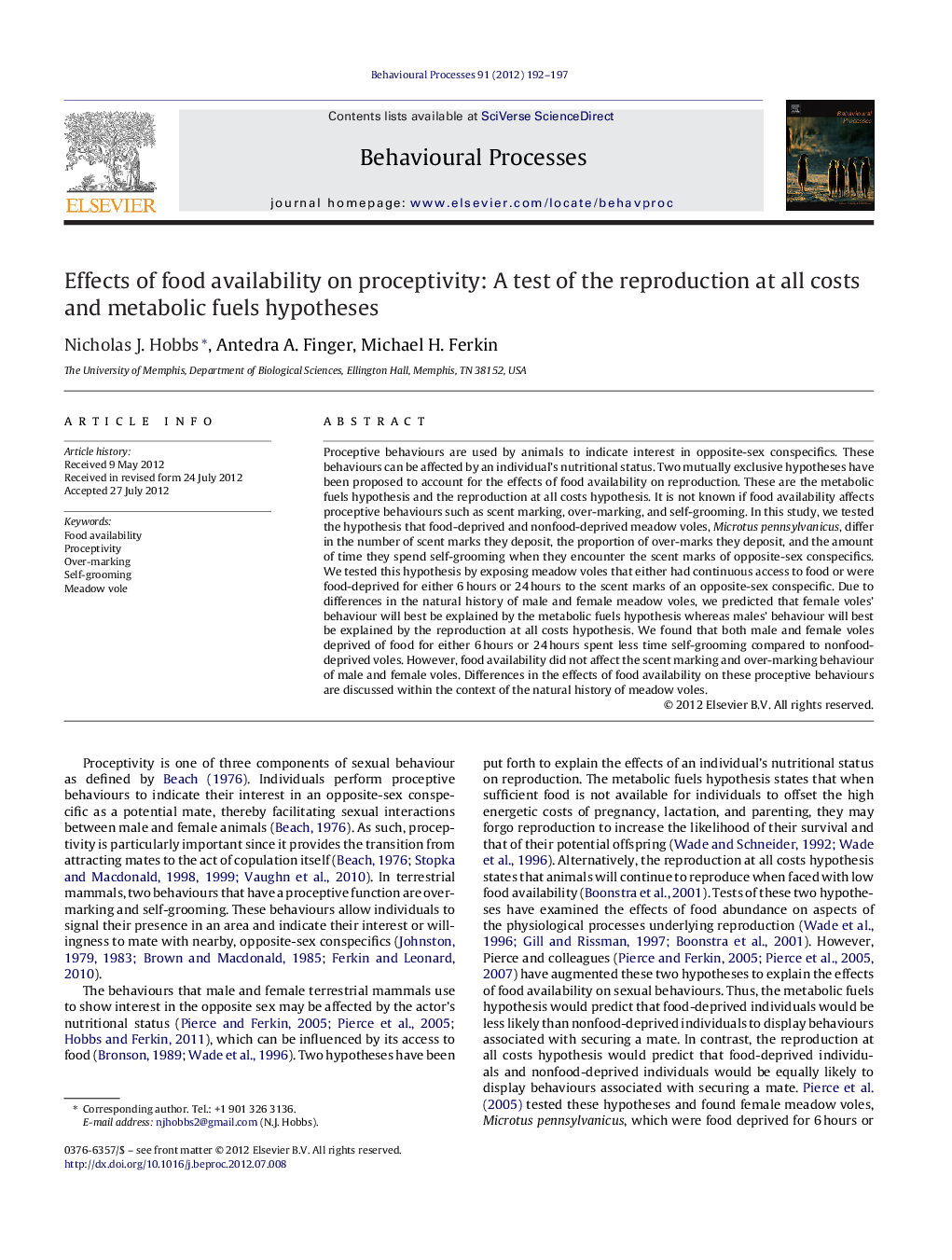| کد مقاله | کد نشریه | سال انتشار | مقاله انگلیسی | نسخه تمام متن |
|---|---|---|---|---|
| 2426994 | 1105936 | 2012 | 6 صفحه PDF | دانلود رایگان |

Proceptive behaviours are used by animals to indicate interest in opposite-sex conspecifics. These behaviours can be affected by an individual's nutritional status. Two mutually exclusive hypotheses have been proposed to account for the effects of food availability on reproduction. These are the metabolic fuels hypothesis and the reproduction at all costs hypothesis. It is not known if food availability affects proceptive behaviours such as scent marking, over-marking, and self-grooming. In this study, we tested the hypothesis that food-deprived and nonfood-deprived meadow voles, Microtus pennsylvanicus, differ in the number of scent marks they deposit, the proportion of over-marks they deposit, and the amount of time they spend self-grooming when they encounter the scent marks of opposite-sex conspecifics. We tested this hypothesis by exposing meadow voles that either had continuous access to food or were food-deprived for either 6 hours or 24 hours to the scent marks of an opposite-sex conspecific. Due to differences in the natural history of male and female meadow voles, we predicted that female voles’ behaviour will best be explained by the metabolic fuels hypothesis whereas males’ behaviour will best be explained by the reproduction at all costs hypothesis. We found that both male and female voles deprived of food for either 6 hours or 24 hours spent less time self-grooming compared to nonfood-deprived voles. However, food availability did not affect the scent marking and over-marking behaviour of male and female voles. Differences in the effects of food availability on these proceptive behaviours are discussed within the context of the natural history of meadow voles.
► We tested how food availability affects two proceptive behaviours in meadow voles.
► Food availability affects self-grooming, but not scent marking or over-marking.
► Self-grooming behaviour follows the metabolic fuels hypothesis.
► Over-marking behaviour follows the reproduction at all costs hypothesis.
► This difference is due to the context in which each of these behaviours is used.
Journal: Behavioural Processes - Volume 91, Issue 2, October 2012, Pages 192–197